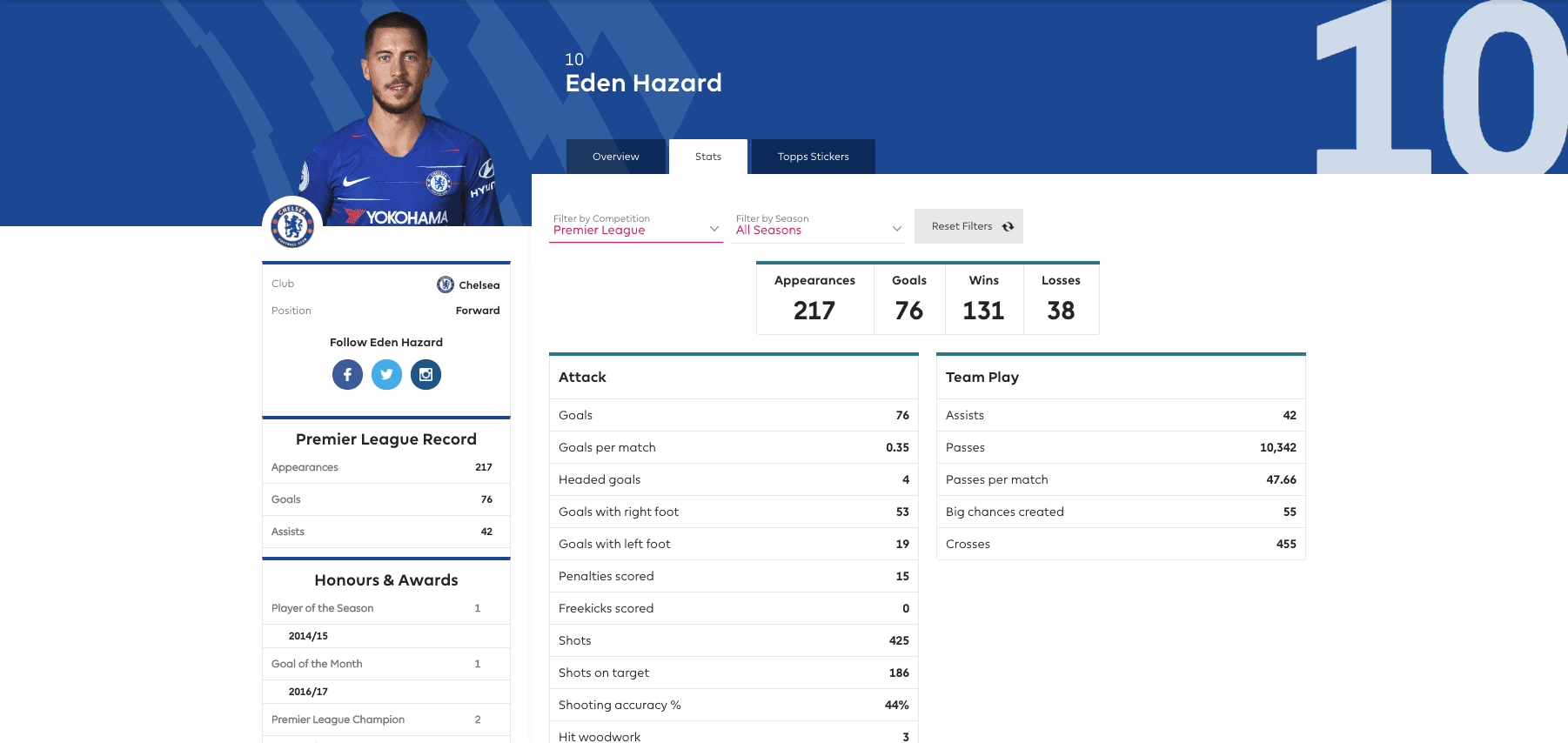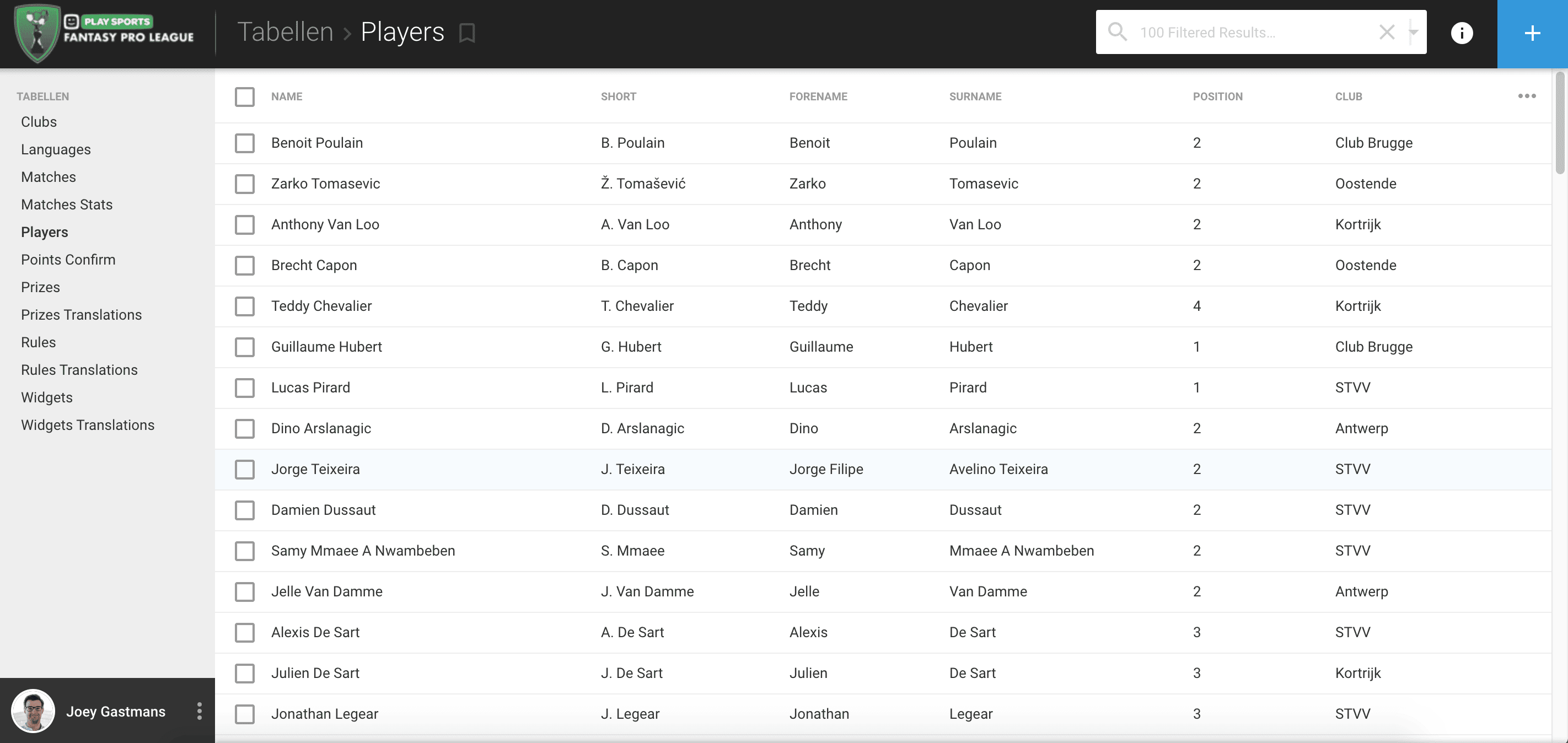
Without data, there are no fantasy sports. It’s that clear. When you have the stats at your fingertips, you have the feeling that you know more about the sport than the average viewer. Most fantasy players exhibit far greater interest in games you normally would not watch. It’s imperative to find a good sports data provider to make a successful fantasy game.
What is a sports data provider?
A sports data provider is a company that collects various sports data and distributes it to broadcast and digital media companies worldwide.
Sports data providers have teams of data analysts who watch live games and simultaneously digitize each action that happens on the pitch. The data collection is done semi-automatically with proprietary software. It’s comparable to playing a video game, in which an analyst presses (a combination of) buttons to log an event. To have a better understanding of how it’s done, watch the video on data collection by Opta below (video removed).
Scoring models in fantasy sports
Data availability determines the scoring model of your fantasy game.
In general, there is more data available for popular sports and leagues. This is down to basic supply and demand. A good example is the difference in available individual player data between the English Premier League and the Belgian Pro League in football.
Sportradar player data for the Pro League:
- Goals (scored, own, penalty scored, penalty miss)
- Assists
- Cards (yellow, red)
- Substitutions (in, out)
Sportradar player data for the Premier League:
- All of the above
- Fouls (committed, was fouled)
- Goals by (head, penalty)
- Goal line clearance
- Offside
- Shots (blocked, faced, saved, on goal, off goal)
- Fouls
The availability of these detailed stats can have a big impact on the scoring model of a fantasy game. More data results in a more accurate representation of the ability of a player and ultimately in a better-balanced and fairer fantasy game concept.
Take Wayne Hennesey of the mediocre Premier League side Crystal Palace. He will never be a top pick when your fantasy game only considers clean sheets. His stock will rise exponentially when you take eg. saves into account. True Premier League connoisseurs know he’s a great shot-stopper.
Defensive midfielders like N’Golo Kanté, who never scores or gives assists, will become a valuable asset when you add tackles, touches, and interceptions.
It’s fair to say that fantasy data is a driver for player recognition and their respective playing styles. One extreme example is the Australian Football League, the most data-rich sport in the world:
What makes a good data provider?
When managing the daily operations of your fantasy game, you should not have to worry too much about your data.
Your data provider needs to guarantee:
- Accuracy
- Real-time delivery
- Customization
- Ease of integration

Our fantasy CMS for Fantasy Pro League
Accurate fantasy data is crucial, as it can cost you a lot of time to check and edit incoming data. But errors are nevertheless unavoidable. In our experience, even the industry leaders in sports data do make mistakes from time to time. Therefore we provide a Fantasy CMS for each of our games to edit and update incoming data. Take the definition of an assist for example: in some leagues and countries, an assist is counted differently. Your fantasy game admin interface needs to have a feature to edit and recalculate points and rankings. Display a status message in your game UI to indicate if the match points are confirmed or not.
Fantasy sports players are very engaged with their team. They want to check points updates in real-time or right after the final whistle. All industry leaders offer real-time delivery and they limit latency to less than 60 seconds. Latency is a determining factor when you compare providers. But keep in mind that low latency is more expensive. Cheaper providers have a latency of up to 5 minutes. So ask yourself: is it worth the investment?
Sports data providers are sitting on a ton of data, which they are eager to sell to anyone. Try to limit your data contract to the metrics you are going to use. Negotiate a customized contract, based on your needs.
Data feeds must be easy to implement to keep costs at a minimum. Data usually comes in the form of JSON APIs or XML feeds, with the latter being the older technology. Developers will appreciate comprehensive documentation and a uniform look and feel for each sport.
Other data sources

Enrich your fantasy game with your insights
A fantasy CMS is not only useful to edit incoming data, but also to enrich your fantasy game with your data and research. Media companies can use the insights (eg. injuries and expected lineups) from their club watchers in the fantasy game. Or they can take the player ratings and match analysis into account in the fantasy scoring model.
But what if you want to develop a fantasy game for a smaller sport in which more advanced metrics are not readily available? A way to tackle this is to incorporate judging or embed a voting system. For each match or gameweek an independent jury of experts rewards eg. the 3 best players with bonus points. With a voting system, your fantasy users pick these players, which increases engagement at the same time.